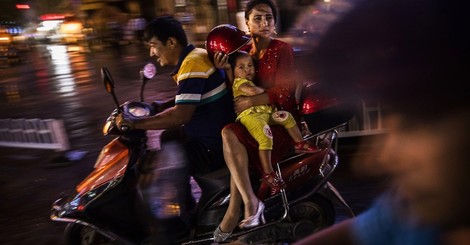Your podcast discovery platform
Curious minds select the most fascinating podcasts from around the world. Discover hand-piqd audio recommendations on your favorite topics.

piqer for: Climate and Environment Globalization and politics Health and Sanity
Mona Silavi is a human and women’s rights activist from the Ahwaz region in Iran. She obtained her bachelor in psychology and specialized in children and adolescence psychology at Damascus University, faculty of psychology and education. She holds a master degree in good governance and human rights in MENA region from Ca’ Foscari University in Venice. She started her activism in Damascus as member of Ahwazi Arab student association. Mona Silavi is a Project Officer at the Unrepresented Nations and Peoples Organization (UNPO) and is the coordinator for topics concerning freedom of religion and belief. She is also a spokesperson of the Al-Ahwaz Democratic Solidarity Party (DSPA). Since 2014 Ms Silavi lives in Belgium as a political refugee
Internment Camps In 21st Century China
I am a member of a minority community in Iran, and from a young age I felt that I have an identity that differs from that of the people around me. Due to the racism I was subjected to since childhood, I feel the need to speak out on matters of discrimination. To put a name on my background is irrelevant here, because the mechanisms of discrimination against minorities and vulnerable groups are the same worldwide, no matter if they are Rohingya Muslims in Burma, a Buddhist majority country, or Buddhists from Chittagong Hill Track in Bangladesh, which is a majority Muslim country.
There is a book called “Marketing of the Rebellion” by Clifford Bob that analyses why some groups receive more attention while others are barely reported on. China is a huge country where different minority groups live and many of them have aspirations for the right to self-determination. However, while most of us are familiar with the case of Tibet, the cases of the Uyghur, Zhuang, Yi and Hui minorities are not as well-known. This article sheds light upon the plight of the Uyghur community under China’s violent assimilation policies.
China is using an advanced system by which it weakens cultural and family ties and even forcibly separates Uyghur children from their parents. As many as one million Uyghurs are held in “re-educations” camps. A new report reveals that the children of the incarcerated are placed in de facto orphanages – even when grandparents plead to take care of them. In these institutions, children undergo brainwashing, are taught to hate their parents and love the Chinese Communist Party. Other activities include forbidding children from visiting family members abroad, as well as making children spy on their parents.
Under these circumstances, husbands and wives may avoid communication with their partner who lives abroad, in fear of government persecution. Imin, an Uyghur who lives outside of China, represents one of these cases.
His wife divorced him last year because staying married to him put a target on her back.
